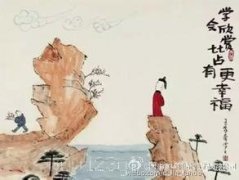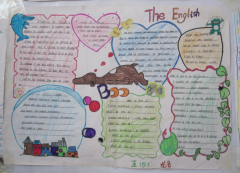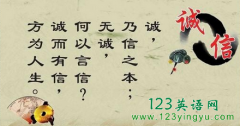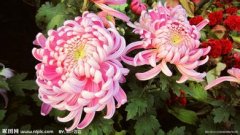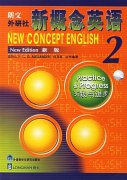英语作文:端午节Dragon Boat Festival
编辑:高中作文网英语作文:端午节Dragon Boat Festival
Dragon Boat Festival, often known as Tuen Ng Festival or Duan Wu Festival, is a traditional Chinese festival held on the fifth day of the fifth month of the Chinese calendar. It is also known as the Double Fifth. It has since been celebrated, in various ways, in other parts of East Asia as well, most notably Korea.
The exact origins of Duan Wu are unclear, but one traditional view holds that the festival memorializes the Chinese poet Qu Yuan of the Warring States Period. He committed suicide by drowning himself in a river because he was disgusted by the corruption of the Chu government. The local people, knowing him to be a good man, decided to throw food into the river to feed the fishes to prevent them from eating Qu's body. They also sat on dragon boats, and tried to scare the fishes away by the thundering sound of drums aboard the boat and the fierce looking dragon-head in the front of the boat.
In the early years of the Chinese Republic, Duan Wu was also celebrated as "Poets' Day", due to Qu Yuan's status as China's first poet of personal renown.
Today, people eat zongzi (the food originally intended to feed the fishes) and race dragon boats in memory of Qu's dramatic death.
端午节,通常被称为端午节或是端午祭,是中国日历上五月五号的一个传统节日,它也被称为五五。人们以多种方式庆祝端午节,甚至在东亚地区,最明显的是韩国。
端午的确切起源尚不明确,但有传统的观点认为,端午是为了纪念中国战国时期诗人屈原。他由于反对楚国国政腐败而投河自尽。当地的人,知道他是一个好人,于是将食物投放进河里喂鱼,以防止它们吃了屈原的尸体。他们坐在龙舟上,并试图用敲鼓的方式和船头具有龙头的船来吓跑鱼
在早期的中国,端午还被称作为“诗人节”,因为屈原是作为中国第一个个人声誉的诗人。
今天,人们用吃粽子(食物原本打算喂养鱼)和赛龙舟来纪念屈原的死。
Dragon Boat Festival
5th day of the 5th lunar month
Qu Yuan
The Dragon Boat Festival, also called the Duanwu Festival, is celebrated on the fifth day of the fifth month according to the Chinese calendar. For thousands of years, the festival has been marked by eating zong zi (glutinous rice(糯米)wrapped to form a pyramid using bamboo or reed leaves) and racing dragon boats.
The festival is best known for its dragon-boat races, especially in the southern provinces where there are many rivers and lakes. This regatta(赛舟会)commemorates the death of Qu Yuan , an honest minister who is said to have committed suicide by drowning himself in a river.
Qu was a minister of the State of Chu situated in present-day Hunan and Hubei provinces, during the Warring States Period (475-221BC)(战国时期). He was upright, loyal and highly esteemed for his wise counsel that brought peace and prosperity to the state. However, when a dishonest and corrupt prince vilified Qu, he was disgraced and dismissed from office. Realizing that the country was now in the hands of evil and corrupt officials, Qu grabbed a large stone and leapt into the Miluo River on the fifth day of the fifth month. Nearby fishermen rushed over to try and save him but were unable to even recover his body. Thereafter, the state declined and was eventually conquered by the State of Qin.
The people of Chu who mourned the death of Qu threw rice into the river to feed his ghost every year on the fifth day of the fifth month. But one year, the spirit of Qu appeared and told the mourners that a huge reptile(爬行动物)in the river had stolen the rice. The spirit then advised them to wrap the rice in silk and bind it with five different-colored threads before tossing it into the river.
During the Duanwu Festival, a glutinous rice pudding called zong zi is eaten to symbolize the rice offerings to Qu. Ingredients such as beans, lotus seeds(莲子), chestnuts(栗子), pork fat and the golden yolk of a salted duck egg are often added to the glutinous rice. The pudding is then wrapped with bamboo leaves, bound with a kind of raffia and boiled in salt water for hours.
The dragon-boat races symbolize the many attempts to rescue and recover Qu's body. A typical dragon boat ranges from 50-100 feet in length, with a beam of about 5.5 feet, accommodating two paddlers seated side by side.
A wooden dragon head is attached at the bow, and a dragon tail at the stern(船尾). A banner hoisted on a pole is also fastened at the stern and the hull is decorated with red, green and blue scales edged in gold. In the center of the boat is a canopied shrine behind which the drummers, gong(铜锣)beaters and cymbal(铙钹)players are seated to set the pace for the paddlers. There are also men positioned at the bow to set off firecrackers, toss rice into the water and pretend to be looking for Qu. All of the noise and pageantry creates an atmosphere of gaiety and excitement for the participants and spectators alike. The races are held among different clans, villages and organizations, and the winners are awarded medals, banners, jugs of wine and festive meals.



